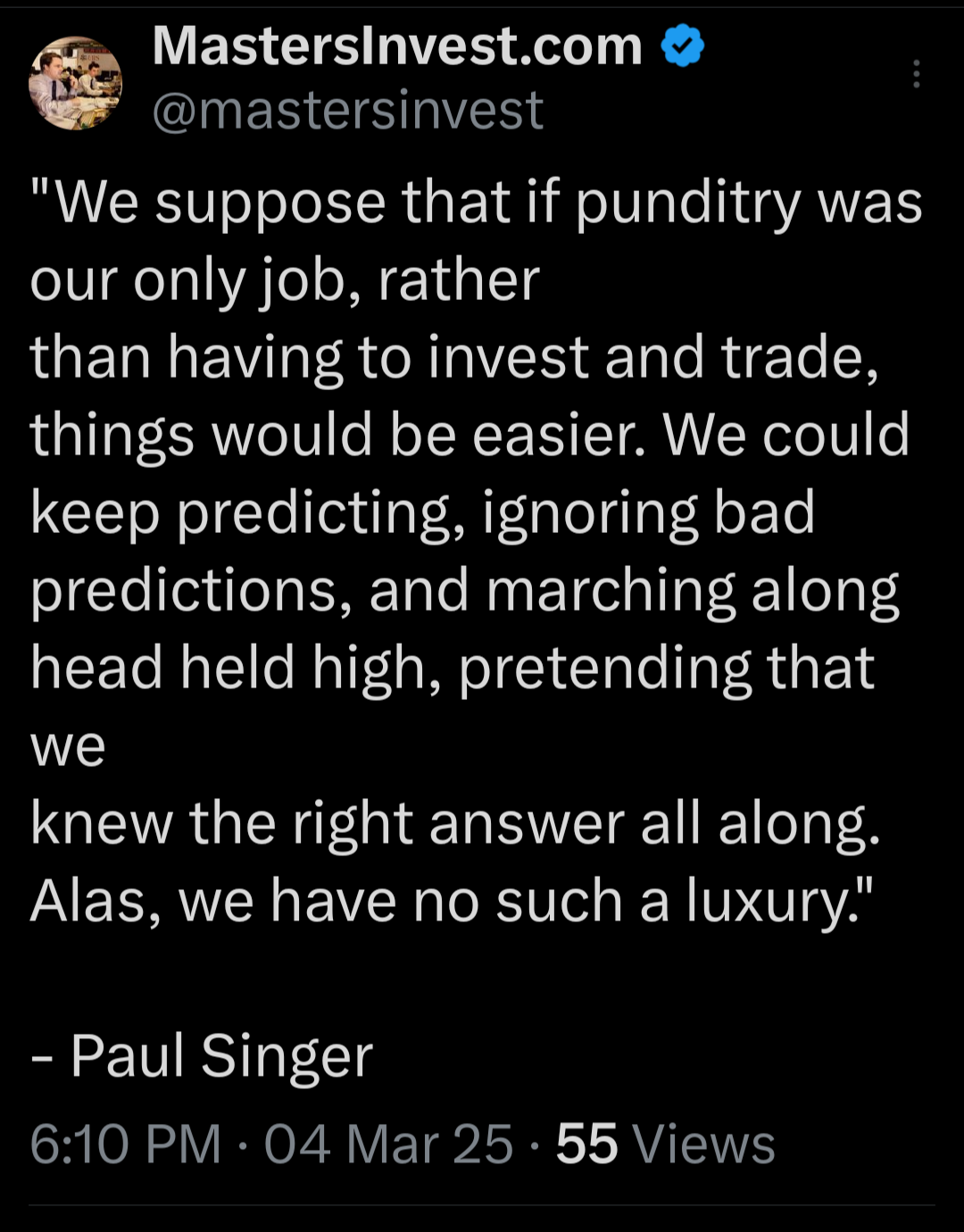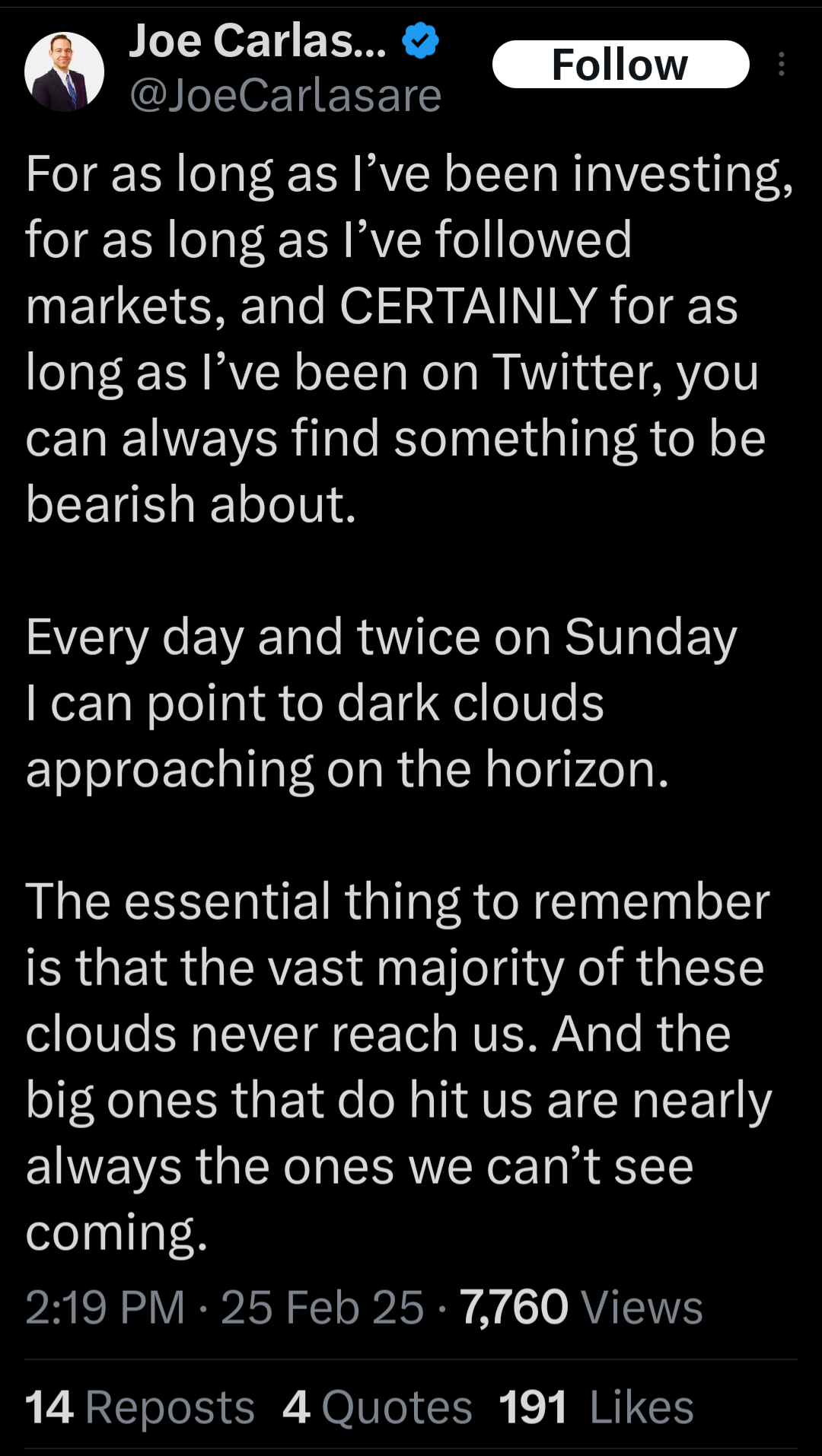Twitter threads

Reminds me of that Mickey Mantle quote: You don't realize how easy this game is until you get up in that broadcasting booth.
18
Feels like it's getting easier to be bearish on the big picture, macro stuff these days. (Or I'm just doing way too much doom scrolling)
So I appreciated this reminder

25

